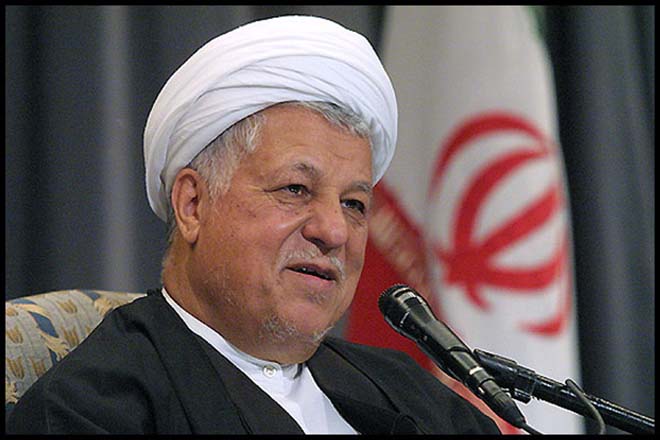The Iranian government should adopt a policy of detente with the West in the Islamic state's nuclear dispute, former president Akbar Hashemi-Rafsanjani said according to a report Monday by news website Khabaronline.
"We can still pass this critical juncture if we act correctly and wisely, make our relations with the world softer and adopt a policy of detente," Rafsanjani was quoted as saying in a meeting with the country's clerics.
Detente, which means 'relaxation' in French, refers to the easing of political tensions and was used in particular to describe the thawing of Cold War relations between the Soviet Union and the United States in the 1970s.
Rafsanjani is considered one of the main opponents of President Mahmoud Ahmadinejad and sees his radical policies - including the president's uncompromising policy in the nuclear dispute - as the main reason for tensions with the West.
A recent round of sanctions imposed on Iran due to its nuclear stance, particularly an oil export embargo, has led to a renewed devaluation of the rial currency, more inflation and an economic crisis.
Tehran has tried to play down the economic impact of the sanctions by adopting what is being branded locally as "resistance economy." Officials have called on local media not to report on problems related to the sanctions.
"Some of the (government's) policies have pushed us towards this resistance economy but new policies are necessary," Rafsanjani said, proposing a more conciliatory approach.
"We hope that the time will come for these new policies to be realized," added the 77-year-old cleric, who heads the Expediency Council, a legislative arbitration body.
The next presidential election in Iran will be held in June 2013, but Ahmadinejad cannot run for what would be a third term.
In separate developments, Ahmadinejad accepted an invitation by Saudi Arabia on Monday to attend a mid-August summit of Islamic states in the holy city of Mecca.
A presidential spokesman confirmed to Fars news agency that the Saudi ambassador had been informed of Ahmadinejad's decision to attend the summit.
Relations between Saudi Arabia and Iran have deteriorated due to the crisis in Syria, where Iran supports the regime and the Saudis back its opponents.






